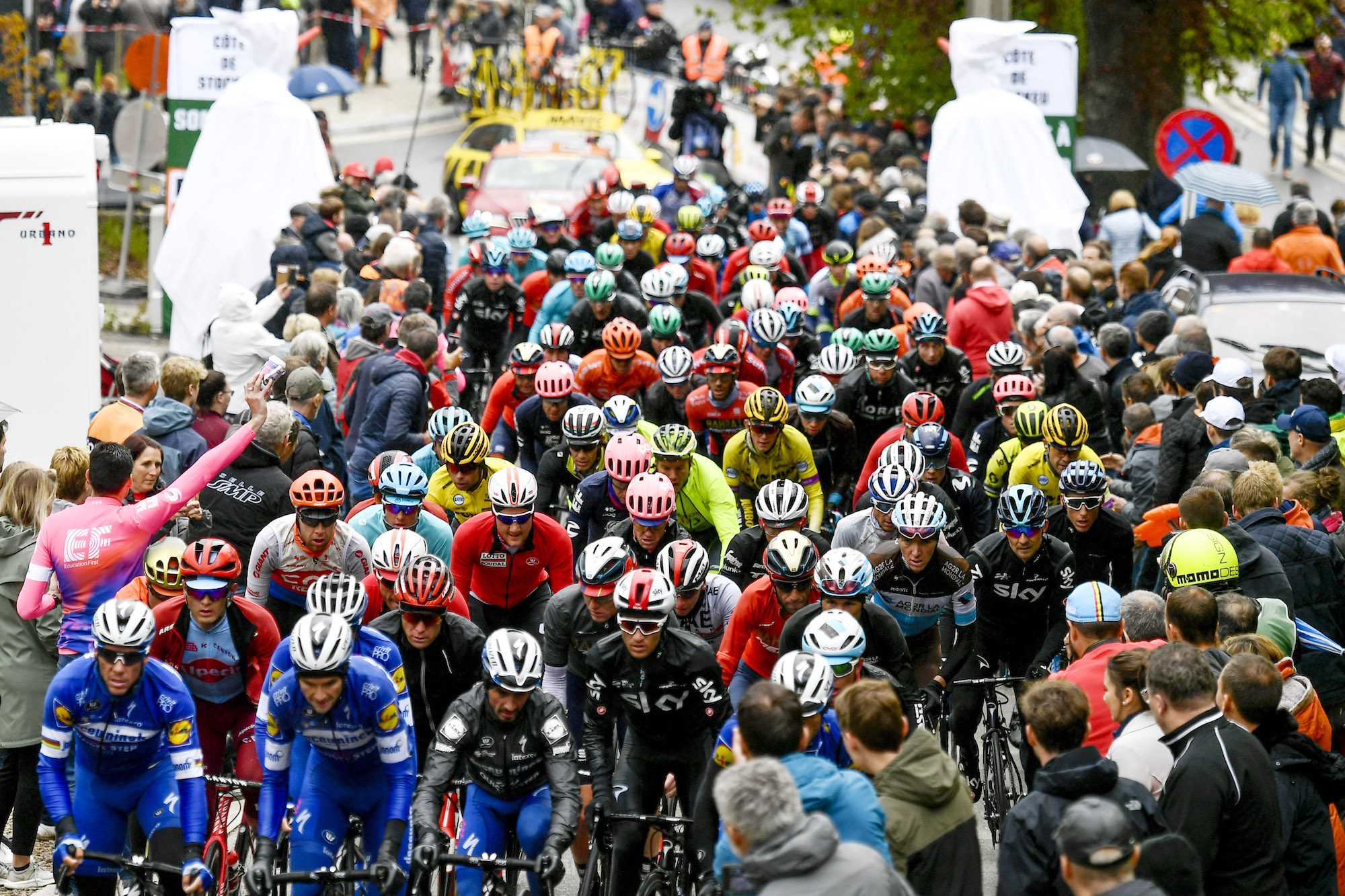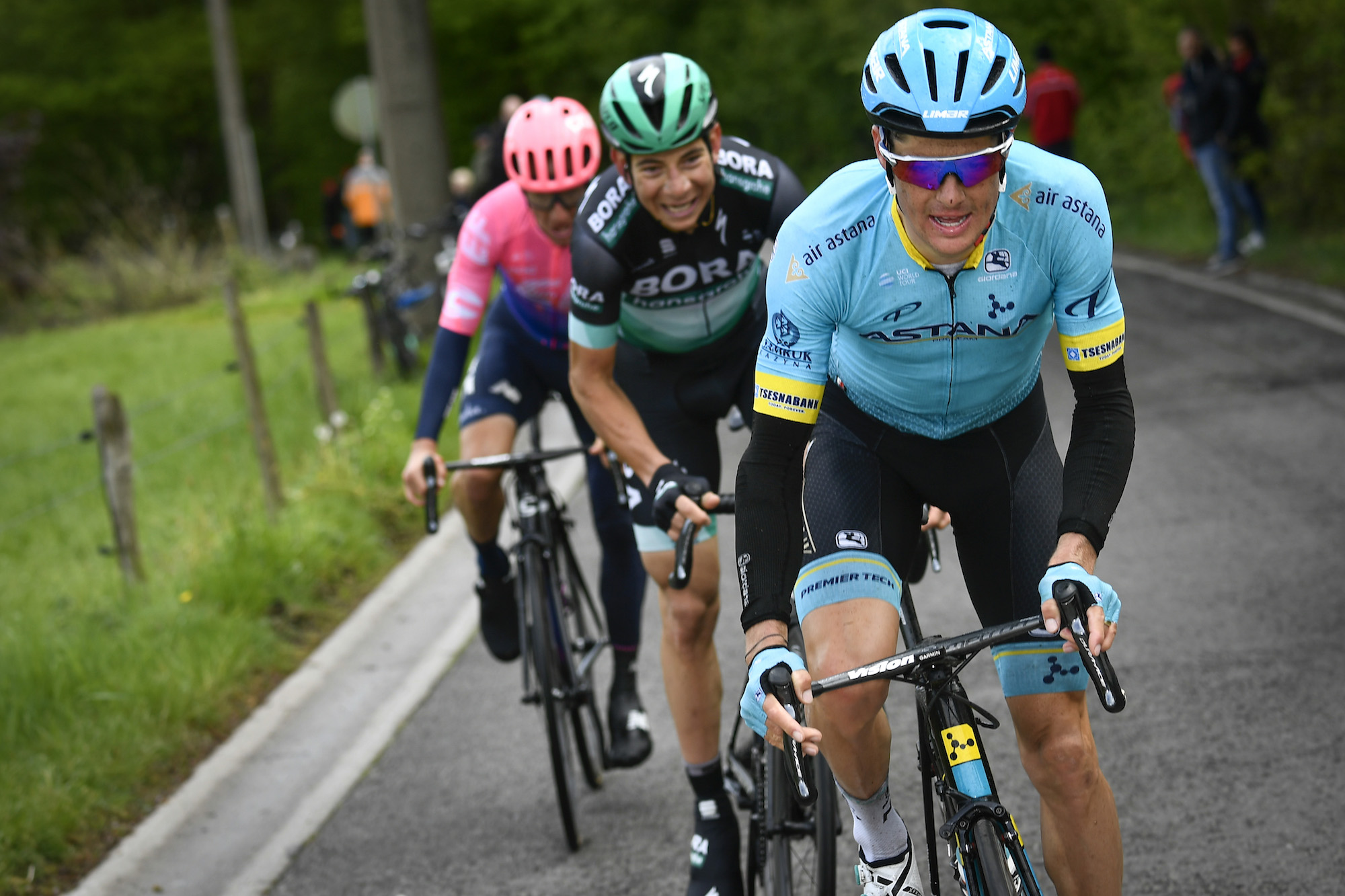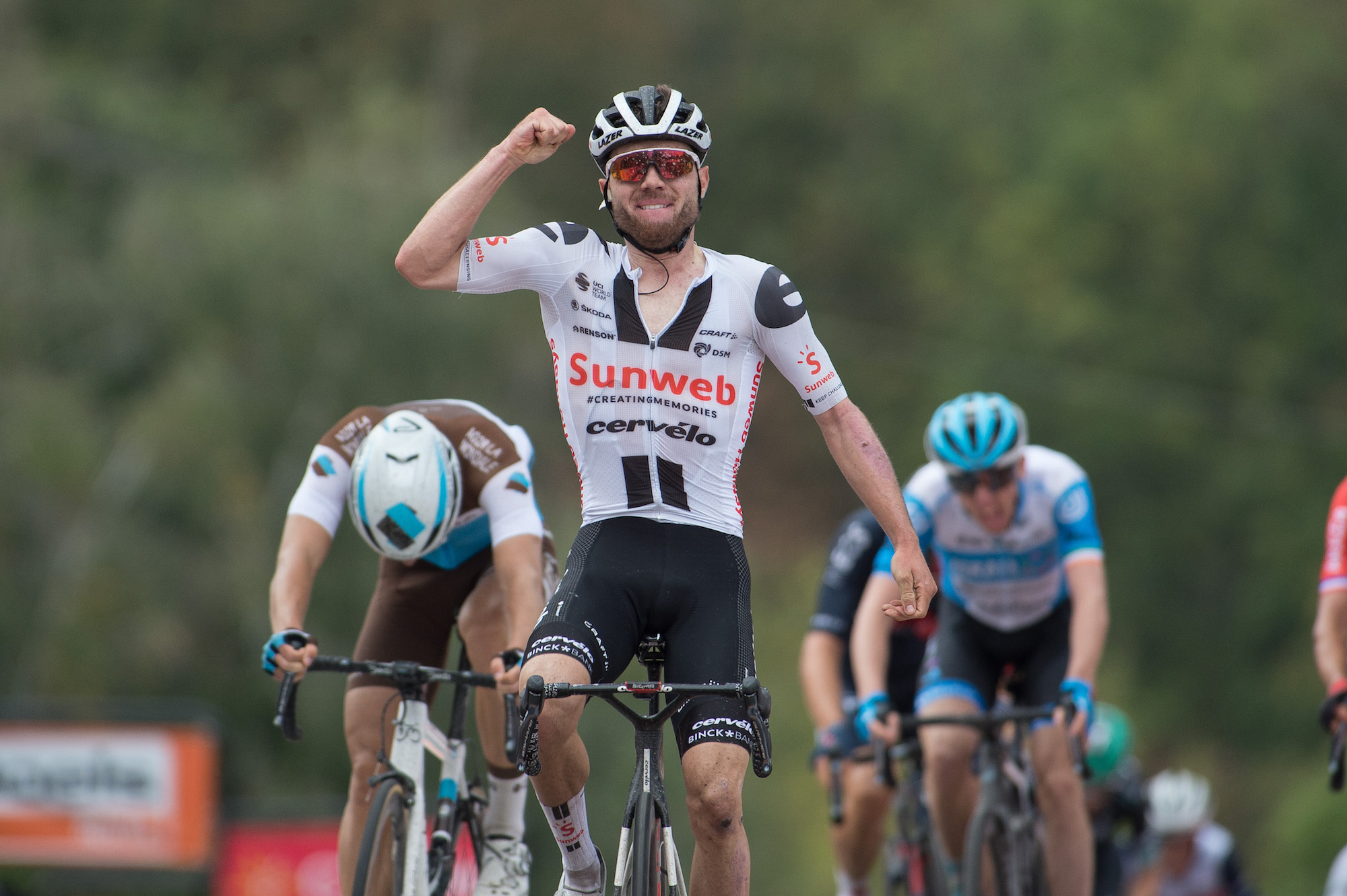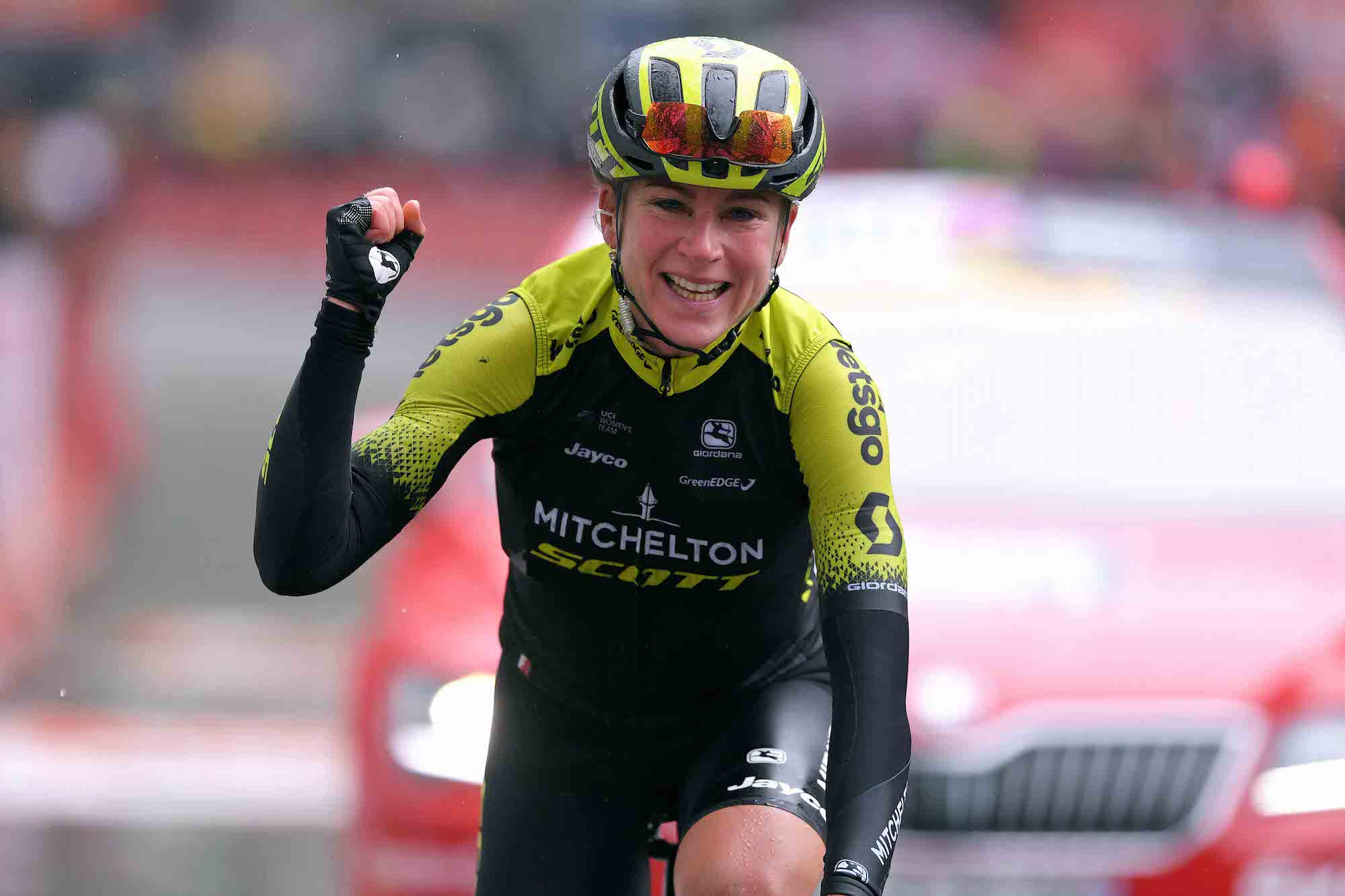Five things to look out for at Liège-Bastogne-Liège 2020
The oldest Classic of them all is finally here for the 2020 edition
The latest race content, interviews, features, reviews and expert buying guides, direct to your inbox!
You are now subscribed
Your newsletter sign-up was successful
The oldest, and possibly hardest, of all the Monuments

Known as La Doyenne (which translates as ‘The Oldest) to reference the fact that it was first held all the way back in 1892, Liège-Bastogne-Liège is one of the most prestigious bike races on the calendar.
It’s also one of the toughest, too. The climbs come thick and fast, with 11 summited in total with barely any moment of respite in between, making for many hours of attritional warfare that will leave even the hardiest riders in the peloton exhausted by the time they reach Liège.
>>> Liège-Bastogne-Liège 2020: all you need to know
The women’s race may not be anywhere near as old, having only been introduced three years ago, but it is comparably hard. They’ll take on a total of five categorised climbs, plus countless more uncategorised lumps and bumps, before the finish in Liège.
Like La Flèche Wallonne (which took place on Wednesday), Liège-Bastogne-Liège is characterised by its challenging, up-and-down parcours, and is held in the same densely forested, hilly terrain of the Ardennes in Belgium. But in terms of difficulty, it’s on a whole other level. Not only is it considerably longer (257km compared with 202km in the men’s races; 136.5km compared with 124km in the women’s), the climbs in Liège-Bastogne-Liège tend to be both longer and tougher.
Toughest of them all is La Redoute. This is the climb most associated with Liège-Bastogne-Liège, consisting of a relentless 2km at a steady average of nine per cent and will this year be crested 35km from the finish in the men’s race and 31km in the women’s. That may possibly be too far to launch a race-winning attack (although Annemiek van Vleuten managed to do so on the climb last year), but it will nevertheless be a crucial point in the race that provides a great spectacle.
The latest race content, interviews, features, reviews and expert buying guides, direct to your inbox!
Race-winning moves on Côte de la Roche-aux-Faucons

A route change last year that involved the finish moving from Ans back to the race’s original endpoint in the centre of Liège-Bastogne-Liège changed the dynamic of the race.
With a downhill and flat run-in from the summit of the Côte de la Roche-aux-Faucons to the finish, without the other climb (Côte de Saint Nicolas) and draggy uphill that used to form the finale, the favourites were instead compelled to make their decisive attacks on Roche-aux-Faucons.
Knowing that there were no more uphills left to negotiate after summiting it, the riders still in the lead group on the final climb committed to putting everything into that kilometre, resulting in an intense, thrilling battle on it. Astana’s Jakob Fuglsang emerged victorious, initially going clear with Michael Woods and Davide Formolo before forcing them both to breaking point and riding solo for victory.
At 1.3km, it’s shorter than La Redoute, but its gradients are significantly steeper. If the pattern from last year’s race is repeated, this is the kilometre that will decide the race.
Newly-crowned world champions

Both the men’s and women’s Liège-Bastogne-Liège will feature recently-crowned world champions, each in with a very good shout of claiming victory.
Usually world champions have to wait until the following spring to show off the rainbow jersey in the Classics, but the topsy turvy calendar of the Covid-affected 2020 season means that Julian Alaphilippe (Deceuninck-Quick-Step) and Anna van der Breggen (Boels-Dolmans) will both compete in a Monument just one week after winning in Imola.
Van der Breggen already has a victory in the rainbow stripes, triumphing at Wednesday’s Flèche Wallonne in her first race after winning in Imola. The Dutchwoman is demolishing all before her at the moment, also winning Giro Rosa and Worlds time trial on top of the aforementioned victories, and goes into the race as the clear favourite.
Alaphilippe is also among the main contenders for the men’s race, but isn’t quite so nailed-on for success. The speed of his uphill kick is unmatched by anyone, and was the main reason for his victories in Imola, the Tour de France stage in Nice, and his runner-up finish at Milan-San Remo. But the Frenchman struggled in tougher races with longer, harder climbs, so may find the notoriously demanding parcours of Liège-Bastogne-Liège too wearying.
Marc Hirschi aims for Ardennes double

History tells us that the same riders who compete for victory at the Flèche Wallonne are also among the main contenders four days later at the other Ardennes Classic, Liège-Bastogne-Liège.
In the last 17 years, the double has been done five times — by Philippe Gilbert (in 2011), Davide Rebellin (2003), and an astonishing three times by Alejandro Valverde (2006, 2015 and 2017). Even the women’s Liège-Bastogne-Liège, which was only introduced as recently as 2017, has already twice been won by the rider (Anna van der Breggen, 2017 and 2018) who also triumphed at Flèche Wallonne
All eyes will, therefore, be on man-of-the-moment Marc Hirschi, who was victorious atop the Mur de Huy on Wednesday. The 22-year-old is on a hot streak currently, with Wednesday's victory preceded by a star turn at the Tour de France on debut and bronze medal at the World Championships. He might be young, but that performance in Imola suggests he’s more than capable of competing in longer
The same riders who pushed him close on the Mur de Huy are likely to be among his main rivals on Sunday. Michael Woods (EF Pro Cycling) led for much of that climb, and has an excellent record at Liège-Bastogne-Liège having finished fifth, second and ninth in the last three editions. And although he faded towards the climb’s summit, sixth for Michał Kwiatkowski (Ineos Grenadiers) suggests he’s still on great form, and will be in the running for victory in a Classic that’s better suited to him.
Likewise in the women’s race, Anna van der Breggen’s main challengers are likely to be the same riders who pushed her close on Wednesday. Second behind her that day was Cecilie Uttrup Ludwig (FDJ Nouvelle-Aquitaine Futuroscope), the young Dane who is getting closer and closer to a maiden WorldTour-ranked Classic victory, and might just peak in time for Sunday.
And the Liège-Bastogne-Liège parcours might play more the strengths of Trek-Segafredo duo of Elisa Longo Borghini and Lizzie Deignan, who could use the race’s many hills to attack Van der Breggen and her Boels-Dolmans team-mates in tandem.
Annemiek van Vleuten returns in attempt to defend title

Although most contenders will have ridden Flèche Wallonne, some skipped that race in order to be as fresh as possible for the most prestigious of the Ardennes Classics.
The most notable rider to do so is Annemiek van Vleuten (Mitchelton-Scott). The 2019 winner plans have been upended by a crash at the Giro Rosa, which caused her to break her wrist and forced her to abandon that race while in the overall lead. Nevertheless, she managed to get back to racing just days later at the Worlds in Imola, where she made a successful return to finish second place.
Her injuries mean we can’t be sure whether she’ll attain the extraordinary heights she attained pre-crash, but if she can recapture something like that form, this should be another instalment of her intriguing rivalry with Dutch compatriot Anna van der Breggen.
Of the men, Alejandro Valverde (Movistar) opted not to go for a sixth career Flèche Wallonne title, but must surely be considered as one of the major favourites for Liège-Bastogne-Liège, a race he has won four times and made the podium of another three times.
Less experienced but just as much of a contender is Max Schachmann (Bora-Hansgrohe), who is looking to improve upon his third-place finish last year, while both Tour runner-up Primož Roglič (Jumbo-Visma) and Britain’s Adam Yates (Mitchelton-Scott) aim to go well having rested their Tour-fatigued legs this past week.
Stephen Puddicombe is a freelance journalist for Cycling Weekly, who regularly contributes to our World Tour racing coverage with race reports, news stories, interviews and features. Outside of cycling, he also enjoys writing about film and TV - but you won't find much of that content embedded into his CW articles.